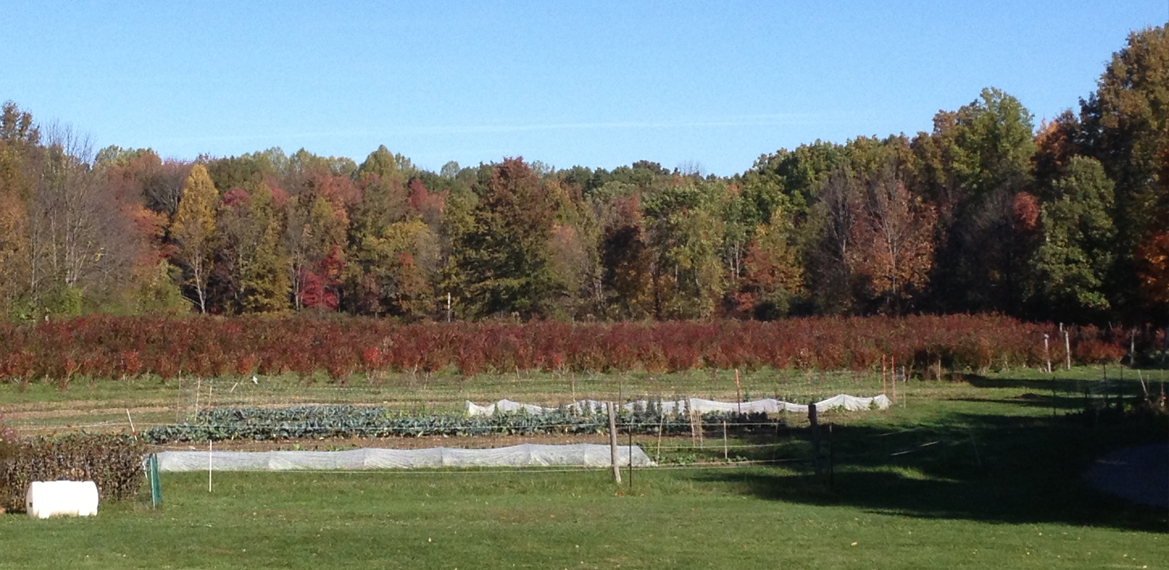Leasing Resources
This page contains resources from organizations across the country that can be used to learn more about lease arrangements, different types of leases, and particular types of lease provisions. Each resource is briefly described below.
 Resource List
Resource List
Debra Heleba, Land Link Vermont; David Major, Major Farm; and Bill Snow, University of Vermont Extension, Keeping Farmland Working in Vermont: A Lease Agreements Guide for Landowners and Farmers
- This University of Vermont Extension guide is a useful introduction to farmland leasing, including things to consider as a farmer and as a landowner.
California Farm Link, Agricultural Lease Resources
California Farm Link, Elements of a Good Lease
- These California Farm Link resources contain an agricultural lease template, as well as an assortment of agricultural lease fact sheets related to the following lease types: cash lease; cash lease from government and non-profit organizations; crop share lease; ground lease; and lease-to-own.
Ed Cox, Drake University Agricultural Law Center, The Landowner’s Guide to Sustainable Farm Leasing
- This comprehensive guide from Drake University’s Sustainable Agriculture Land Tenure Initiative provides considerations for farmers to think about when developing a sustainable lease. Chapter 2 contains a useful list of questions to help farmers and landowners think about long-term farm planning and sustainability concerns.
Land For Good, Toolbox for Leasing Farmland
- Land for Good provides farmers with significant resources in the field of land access. This resource contains guides and tutorials for farm seekers and landowners, including a leasing tutorial and sample leases.
Equity Trust, Model Documents
- Equity Trust has developed a Model Agricultural Ground Lease, as well as commentary on the model lease to help laypersons understand the legal and technical nuances of a ground lease (where a tenant owns the structures on the land but rents the land itself).
Farmers’ Legal Action Group (FLAG), Leasing Farmland in Minnesota
- FLAG, a nonprofit law center supporting family farmers, created this tutorial, which walks users through leasing basics.
Iowa State University, Iowa State Extension Ag Decision Maker: Whole Farm Leasing and Farm Leasing Arrangements
- This website from Iowa State University contains resources and sample documents for farmland leasing, rental rates, and other farm business information.
Mark Cannella and Ben Waterman, University of Vermont Extension’s Center for Sustainable Agriculture, How to Determine the Right Farm Rental Rate
- This comprehensive resource from the University of Vermont Extension helps farmers and landowners determine a fair cash rental rate for farmland, equipment, and infrastructure.
Cornell University’s Northeast Beginning Farmers Project, Guide to Farming in New York State
- This Cornell University guide contains a section on leasing, along with information for those seeking to farm in New York State.
New Jersey State Agricultural Development Committee and NOFA-NJ, Leasing Farmland in New Jersey: A Guide for Landowners and Farmers
- This is a comprehensive guide to leasing farmland in New Jersey, including sample leases.
Penn State Extension, Farmland Assessment Checklist
- This Penn State Extension resource is guide to help farmers think through issues related to leasing farmland.
National Agricultural Law Center
- The National Agricultural Law Center website, funded by the National Agricultural Library, is a very comprehensive resource for legal issues regarding agriculture and food, and includes federal and state statues and regulations, case law, numerous publications, research materials, and sample contracts (including leases).
National Center for Appropriate Technology’s ATTRA Sustainable Agriculture Program
- ATTRA, funded predominantly by USDA, is a comprehensive resource for every USDA-funded project related to sustainable agriculture. Farmers or landowners can search for leasing-related or other farming-related issues by keyword.
Farmer Spotlight:
Greenfield Berry Farm

Daniel became a farmer because of his love of nature. “That's where it all stems from," he explains. Daniel and his wife Michele partnered with a national park to create a pick-your-own berry farm.
 How An Attorney Can Help
How An Attorney Can Help
The Attorney’s Role
It’s not an attorney’s job to make decisions for farmers or to set farm transfer goals. Instead, attorneys can provide information about pros and cons of different options, advice about what is common versus unusual, fair versus unfair, etc. Attorneys can help farmers understand the range of possible farm transfer goals and help narrow down individual options so that farmers can make final decisions.
How An Attorney Can Help With Leasing
- Review a farm lease that you have drafted or the other party has drafted.
- Draft a farm lease.
- Negotiate lease terms.
- Navigate a dispute that might arise during the course of a lease relationship.
- Enforce a lease agreement if a relationship falls apart, including helping farmers avoid eviction.
Related Legal Tools



The Center for Agriculture and Food Systems is an initiative of Vermont Law School, and this toolkit provides general legal information for educational purposes only. It is not meant to substitute, and should not be relied upon, for legal advice. Each farmer’s circumstances are unique, state laws vary, and the information contained herein is specific to the time of publication. Accordingly, for legal advice, please consult an attorney licensed in your state.
